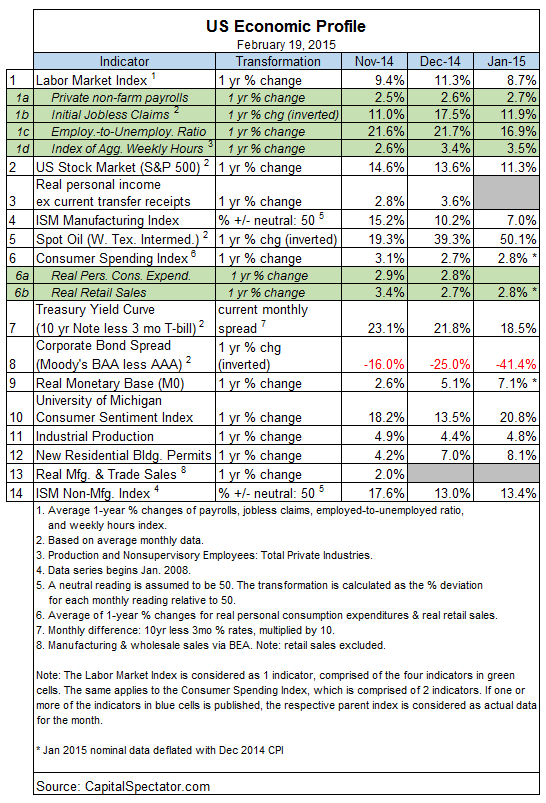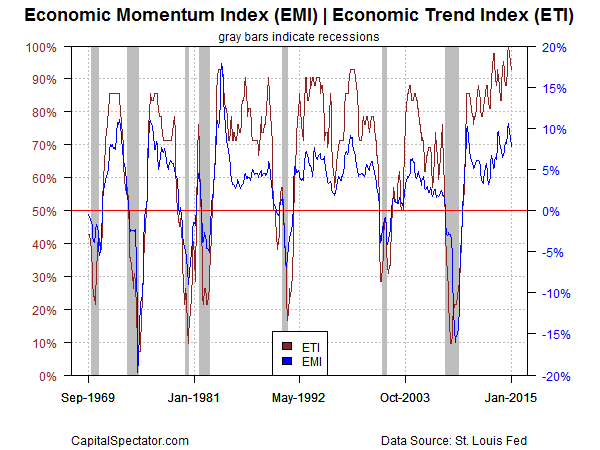The broad trend for the US economy continued to show resilience in the first month of 2015. Despite the upbeat news, the outlook is one of cautious optimism. Any number of potential hazards simmering in the global economy may bring headwinds down the road. Meantime, there are risks lurking within the US, including a wobbly real estate market and the ongoing labor dispute at West Coast ports that’s starting to pinch the nation’s maritime economic activity. Based on the current data set through January, however, positive macro momentum for the US was intact .
Using a methodology outlined in Nowcasting The Business Cycle: A Practical Guide For Spotting Business Cycle Peaks, economic and financial trends suggest that recession risk for the US remained low in January. The Economic Trend and Momentum indices (ETI and EMI, respectively) are still at levels that equate with expansion. The current profile of published indicators through last month (12 of 14 data sets) for ETI and EMI reflect solidly positive trends.
Here’s a summary of recent activity for the components in ETI and EMI:

Aggregating the data into business cycle indexes continues to reflect positive trends. The latest numbers for ETI and EMI indicate that both benchmarks are well above their respective danger zones: 50% for ETI and 0% for EMI. When the indexes fall below those tipping points, we’ll have clear warning signs that recession risk is elevated. Based on the latest updates for January — ETI is 92.9% and EMI is 7.8% — there’s still a sizable margin of safety between current values and the danger zones, as shown in the chart. (See note below for ETI/EMI design rules.)

Translating ETI’s historical values into recession-risk probabilities via a probit model also suggests that business cycle risk remains low for the US. Analyzing the data with this methodology implies that the odds are virtually nil that the National Bureau of Economic Research (NBER) — the official arbiter of US business cycle dates — will declare last month as the start of a new recession.







